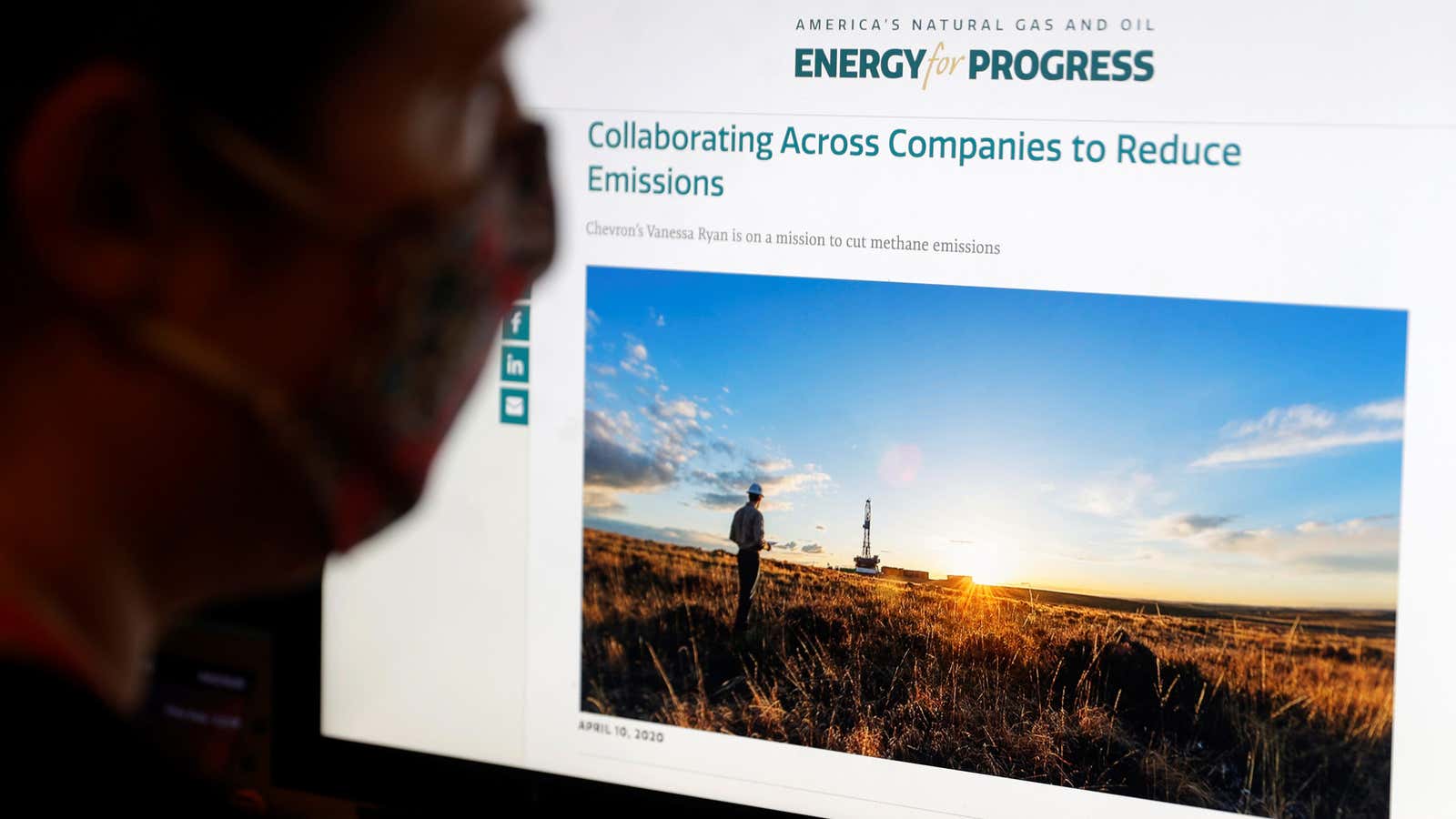Earlier this month, oil major Total took the unusual step of abandoning the American Petroleum Institute (API), the influential trade group that has advocated for the industry’s interests in Washington for more than a century.
As an explanation for quitting the group, Total cited API’s support for the rollback of curbs on methane emissions, its opposition to electric vehicle subsidies, and its funding of electoral candidates who opposed the US’ participation in the Paris Agreement on climate change.
Its departure is the starkest example yet of a broader shift of oil companies quitting their memberships in industry bodies and lobbying groups—particularly those that, like API, have been accused of obstructing climate change initiatives.
On its website, API commits to “delivering solutions that reduce the risks of climate change.” On the ground, however, it has been found to have repeatedly stymied new climate-friendly legislation and supported moves such as Donald Trump’s decision to invite drillers into the Arctic National Wildlife Refuge in Alaska.
In 2019, Total left the American Fuel & Petrochemical Manufacturers, a more niche lobbying group. Shell quit that group as well, as did BP, which additionally left the Western States Petroleum Association and the Western Energy Alliance.
Shell and BP remain members of API, however, as do other major companies such as Siemens Energy, Chevron, LafargeHolcim, and Echinor. A Shell spokesperson told Quartz that the company is “now updating and assessing its membership in 36 global trade associations (API among them)” but that groups like API aren’t expected to be “monolithic in their platforms or advocacy approach.”
A Siemens Energy spokesperson said the company supports decarbonization of the world’s energy system, but that this transformation would not happen overnight: “Natural gas will remain an important interim solution for our global energy system for years to come. Our customers and API share this vision.”
Megan Baldino, the head of corporate communications for BP, said the company monitors its trade association memberships, “especially those we view as only ‘partially aligned’ with us on climate-related issues. We remain committed to trying to influence those associations from within and will publish a trade association update” in the second quarter of this financial year.
Echinor, LafargeHolcim, and Chevron did not respond to a request for comment.
Agnes Hall, the campaigns director for 350.org, an advocacy group pressing for laws to combat climate change, identified a buildup from activists and institutional investors as the driving force behind some of these realignments. This buildup has occurred over the course of several years, intensifying since 2015, when the Paris Agreement was signed. That year, 25 institutional investors with more than £45 billion ($62 billion) in assets urged nine listed companies to quit European trade groups such as FuelsEurope and Cefic.
Investors and asset managers have also been demanding more transparency about trade group memberships and lobbying expenditure. Hall said that more than 1,300 investors worth over $14 trillion have pledged to divest from fossil fuels.
Evelyn Dietsche, a senior business lead at the research institute swisspeace, which studies companies in high-risk business environments, also pointed to frictions within firms as a reason for these shifts in stances. “Within these companies, you’ll have some people tasked with looking for the opportunities in the transition to gas or renewable fuels and the company’s future in that, and you’ll have others who, at least until recently, focused their attention on prolonging the status quo,” she said. “At some point, it should become untenable to gloss over that ambiguity.”
But Hall, at 350.org, called these publicly announced departures from trade associations “a clear greenwashing strategy.”
“If Total, BP, Shell, and the oil majors wanted to be coherent with what they try to pass as climate leadership, they would not only leave trade associations pushing back on ambitious climate policies, but they would also immediately start a rapid transition of their business model,” she said.
